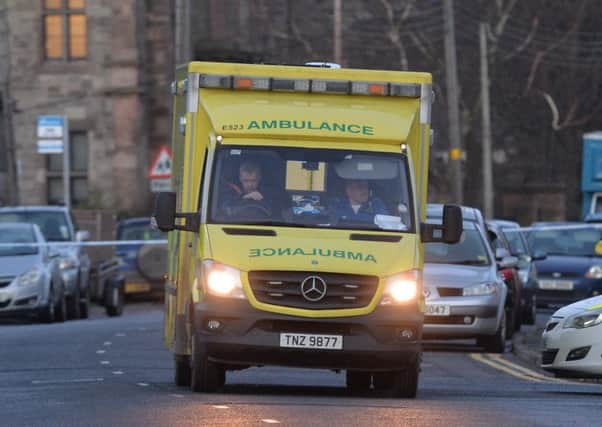Middleton concerned at paramedics' plight


The Northern Ireland Ambulance Service (NIAS) confirmed it had to rely on private and voluntary ambulances at it was unable to staff 12 vehicles due to sickness, leave and cancelled overtime.
Mr Middleton said: “Paramedic staff are under pressure and over the weekend was a particularly difficult period for them, but at the same time, thankfully nobody went without care – those who required it got it.
Advertisement
Hide AdAdvertisement
Hide Ad“But had there been a serious incident, I think we could have been in trouble in terms of emergency care.
“An additional £72 million was made available in the June monitoring round for health. Some of that was to go to emergency response, and I think what we need to see at this time is an urgent recruitment campaign to get new staff in to relieve the pressure on existing staff,” he said.
Mr Middleton added: “If it continues the way it’s going, it’s going to go to breaking point.”
Back in April 2015, Unison warned the potential for sickness was as foreseeable as annual holiday leave or cancelled overtime.
Advertisement
Hide AdAdvertisement
Hide AdA Unison survey – of 248 ambulance workers in Northern Ireland – revealed 71 per cent were suffering with sleep problems, 73 per cent said they felt irritable as a result and experienced mood swings and 64 per cent suffered with anxiety.
Ninety-six per cent of ambulance workers in Northern Ireland said they had suffered from work-related stress.
Sixty three per cent said they had to take time off sick because of work related stress and 21 per cent admitted they were very close doing so.
One paramedic described how hospital closures mean they have to drive hundreds of miles every day. He said: “too few ambulances and missed meals would stress anyone.”
Advertisement
Hide AdAdvertisement
Hide AdAnother ambulance worker who has not taken a day off sick in ten years said he is about to ‘explode’. Others described being tearful, suffering with migraines, post traumatic stress disorder and feeling exhausted.
Worryingly, 44 per cent admitted they did not tell their employer the reason they were off sick was stress. Only six per cent said they would talk to a manager or a supervisor to cope with stress.
Last year Unison Regional Organiser, Nuala Conlon said: “Working in emergency services is stressful but the pressure on ambulance staff is reaching dangerously high levels.
“It is unacceptable that the current system doesn’t allow for proper breaks between shifts.
Advertisement
Hide AdAdvertisement
Hide Ad“Higher call out rates and lengthy waits outside A&E departments are adding to the problem. It is clear that the pressure caused by government funding cuts is having a huge impact on staff and on patient safety.
“But it is vital that patients use the service responsibly, for example only calling 999 for an ambulance when there is a real emergency.
“This confirms the findings from the NHS staff survey that shows much greater pressure on staff in the ambulance service than any other part of the NHS.
“The pressure on workers is mounting and the apparent lack of support from their employers means they are suffering in silence. Year after year the levels of stress remain unacceptably high and yet neither employers nor the government have done anything to address this.”